Covid: Unvaccinated most at risk from Delta variant
- Published
- comments
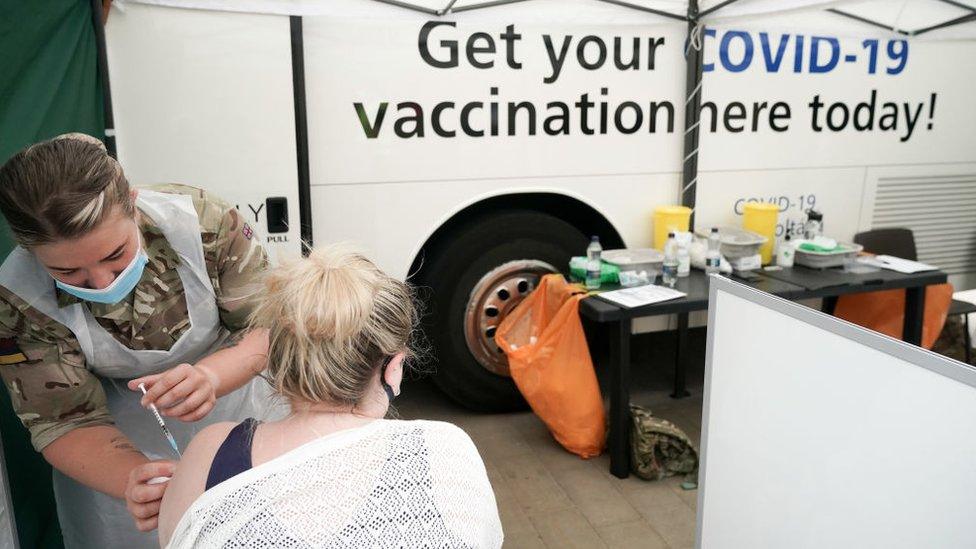
Vaccination is our best defence against the Delta variant, say health officials
Nearly two-thirds of people infected with the Delta variant, and more than half of those who have died with it, have not had a Covid vaccine at all, the latest official data suggests.
There have been nearly 30,000 new UK cases of the variant in the past week.
The Public Health England report says it is likely to spread more easily and could make people more seriously ill.
Officials also say two doses of the vaccine provide "significantly more protection" than one.
It comes as the Office for National Statistics, external estimates coronavirus infections are continuing to rise in England, with one in 560 people testing positive.
But the ONS found no obvious increase in infections in Wales, Scotland and Northern Ireland.
The Delta variant, which was first identified in India, is now the dominant variant in the UK - accounting for 90% of cases.
It is being closely monitored by PHE, which is using new genotyping tests to detect the variant more quickly as cases continue to rise.
These suggest that the Delta variant is roughly 60% more spreadable than the Alpha, or Kent, variant.
Analysis of hospital admission rates suggests people infected by the Delta variant are twice as likely to end up in hospital than those with Alpha.
The numbers are still small, however.
Out of 33,000 cases analysed by PHE, external and confirmed to be the Delta variant since February, 223 have been admitted to hospital - most were unvaccinated or had only had only dose, and 20 people were fully vaccinated.
And of 42 deaths in people with Delta variant infections, 23 were unvaccinated and seven had received only one dose. The other 12 had received two doses more than two weeks before.
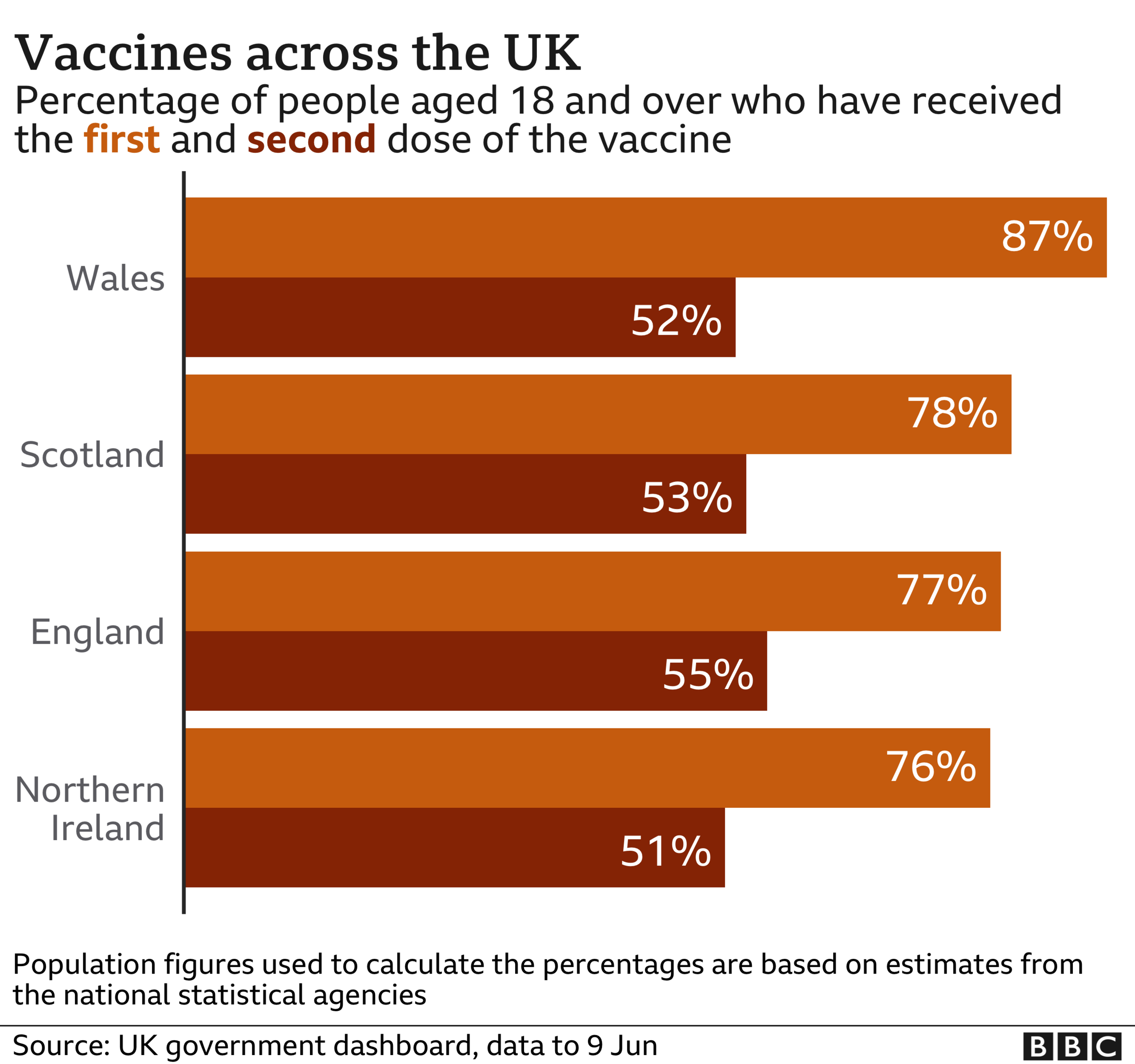
In the UK, more than half of all adults have now been fully vaccinated with a Covid vaccine and more than three-quarters have had one dose. But that means more than 10 million adults, mostly in their 20s, have yet to have a single dose.
As more young people are vaccinated, protection against the new variant will rise.
Dr Jenny Harries, chief executive of the UK Health Security Agency, said "vaccination is our best defence".
"If you are eligible, we urge you to come forward and be vaccinated. Remember that two doses provide significantly more protection than a single dose."
However, Dr Harries warned that while vaccination reduces the risk of severe disease, it does not eliminate it because Delta is "significantly more transmissible than Alpha".
Prof Adam Finn, a member of the UK's Joint Committee on Vaccination and Immunisation, told the BBC the current wave of infections was increasing "faster than we hoped", but the vaccines "do still work".
"The more population immunity we've got, the smaller this wave will be," he added.
Meanwhile, the latest R number - or reproduction number - in England is estimated to have risen to between 1.2 and 1.4, up from between 1 and 1.2 last week, according to the government's Scientific Advisory Group for Emergencies., external
If the R number is above one, then the number of cases keeps increasing.


This is some of the last data we're going to see before the decision is made on whether to fully unlock in England on 21 June.
So what are these numbers really telling us?
They show both the incredible power of vaccines - and reasons for concern.
Most cases, people needing hospital treatment and deaths were in those who haven't been vaccinated.
However, it also shows the Delta variant is more transmissible and vaccines aren't a perfect defence. Some fully vaccinated people needed hospital treatment and died after catching the variant.
Part of the variant's advantage over Alpha is its ability to partially evade the immune system in some vaccinated people.
The worry, from government science advisers, is a large summer wave of this more transmissible variant could still put the health service under pressure.

The ONS data, for the week to 5 June, found infection rates were highest in the North West of England at 0.5%, and across the rest of England they were either 0.1 or 0.2%.
And secondary schools had the highest infection rates (0.5%), followed by young adults (0.4%) - both groups which are yet to be vaccinated.
The lowest rates (0.1%) were in adults over 70 and those aged 50-69, the majority of whom are fully vaccinated, and therefore protected to some degree against infection.
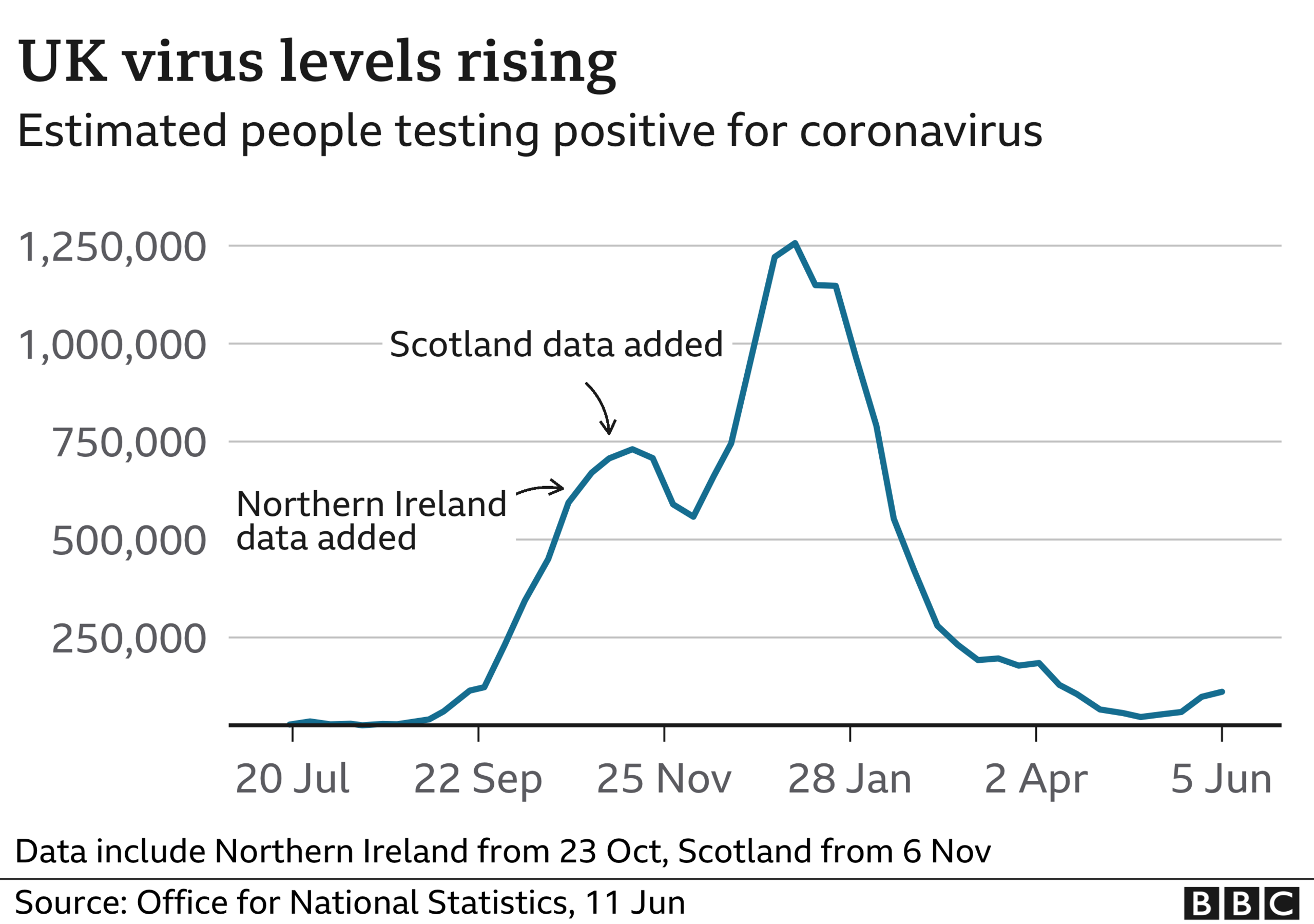
Related topics
- Published17 November 2021
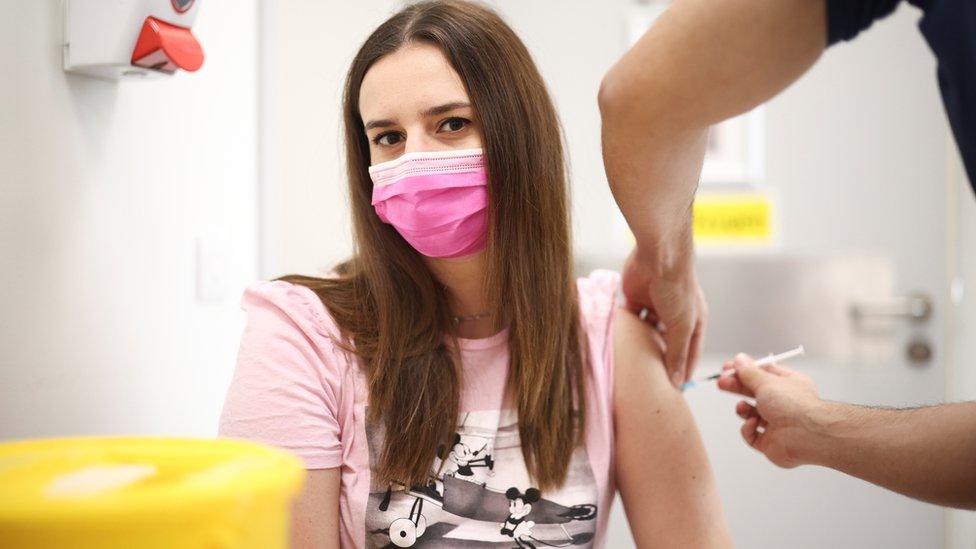
- Published10 June 2021
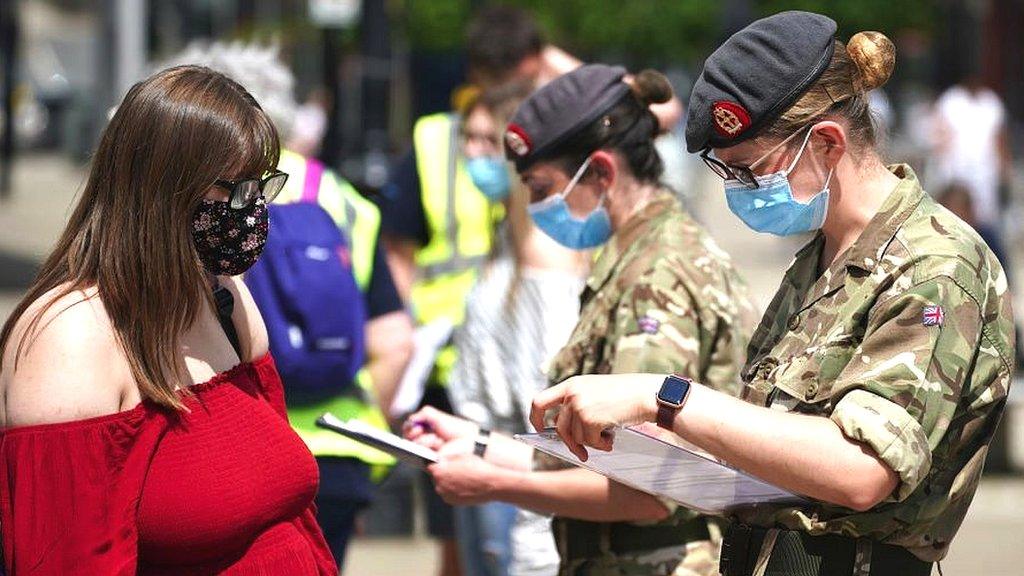
- Published9 June 2021

- Published2 April
